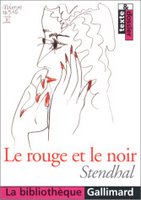Schedule
I've posted a schedule in the sidebar, its main purpose being to focus discussion on specific sections and prevent spoiling plot and character developments for your fellow readers.
The date cited is the day on which posting and discussion opens for the indicated chapters.
I've used my French edition as a cue for a few of the breaks, as some academics have deemed it appropriate to interrupt the text in these places with scholarly articles and other supplementary material. The remainder of the breaks I've determined solely on the basis of page count.
I will be away November 22–29 and may or may not have internet access during that time, but I certainly intend to read while away. Section discussions now open on Mondays (a change from previous discussions, to accommodate my little vacation so I won't miss a full section). Also, I've stretched one section over 2 weeks at the end of December as I expect both reading and discussion may slow a little around Christmas.
I'll be digging around for some background material to post over the next couple weeks. Feel free to do same, introduce yourselves, post some initial thoughts on Stendhal or The Red and the Black, why you're reading it or what you've heard about it.
Happy reading!
The date cited is the day on which posting and discussion opens for the indicated chapters.
I've used my French edition as a cue for a few of the breaks, as some academics have deemed it appropriate to interrupt the text in these places with scholarly articles and other supplementary material. The remainder of the breaks I've determined solely on the basis of page count.
I will be away November 22–29 and may or may not have internet access during that time, but I certainly intend to read while away. Section discussions now open on Mondays (a change from previous discussions, to accommodate my little vacation so I won't miss a full section). Also, I've stretched one section over 2 weeks at the end of December as I expect both reading and discussion may slow a little around Christmas.
I'll be digging around for some background material to post over the next couple weeks. Feel free to do same, introduce yourselves, post some initial thoughts on Stendhal or The Red and the Black, why you're reading it or what you've heard about it.
Happy reading!

